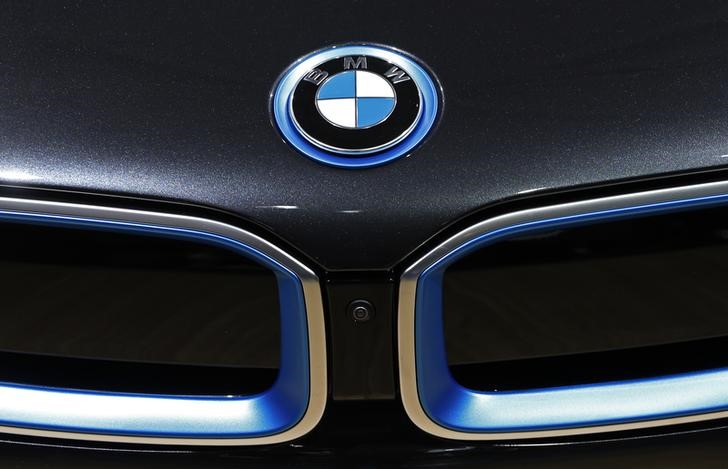By Edward Taylor
FRANKFURT (Reuters) - For years, record sales of high-performance sports cars meant big profits at BMW (DE:BMWG) that could fund incentives and investment in technology to meet the EU's fuel efficiency rules.
But sales of competitors such as Audi have caught up and profits are shrinking. With BMW's final fourth-quarter earnings out on Wednesday, some in the industry are wondering if the old "sales grow, profits look after themselves" formula no longer works.
Preliminary results show that margins at BMW's auto division have fallen to their lowest in nearly five years, the latest sign that the sales crown title it has successfully defended for almost a decade is increasingly costly.
"There is an obsession with volume growth in the German premium segment and it needs to come to an end, otherwise it becomes a negative spiral of discounting, eroding the brand equity," said Arndt Ellinghorst, head of automotive research at Evercore ISI.
But BMW's conundrum is shared by Mercedes and Audi. All have relied on a similar formula for growth: building cars which emphasise performance while expanding their sales footprint into emerging markets and developing new vehicles, such as the sporty offroader.
When Norbert Reithofer became CEO of BMW Group in September 2006, it only sold 18 BMW-branded sportscars today there are 35 as the company has expanded its range to boost sales and capture different parts of the car market.
Some managers agree with the analysts. BMW's board member for MINI, Peter Schwarzenbauer told Reuters late last year: "the auto industry has become too focussed on volume sales."
He has cut the number of Mini models on offer, discontinuing the Mini Coupe.
BMW says it has an ongoing strategy review as it prepares to celebrate its centenary next year and install Harald Krueger as its next chief executive in May.
A spokesman for BMW said on Tuesday that volume sales is not a goal by itself and that maintaining profit margins is more important. BMW still has growth potential to exploit with its current strategy, the spokesman said.
CHALLENGES AHEAD
BMW achieved a new sales record, after deliveries of its core brand jumped 10 percent last year to 1.81 million cars, outpacing Audi, which sold 1.74 million, and Mercedes-Benz which sold 1.65 million of its own-branded passenger cars..
But the traditional model looks set for more pressure.
Emerging markets are no longer growing at the same pace as in previous years. Sales in Brazil, Argentina and Russia have fallen sharply. In January, BMW revealed it would pay local dealers in China some $800 million in rebates for sitting on large stockpiles of cars.
Once known for creating the 'ultimate driving machine' BMW is also working to meet the demands of EU regulators and cut average vehicle fleet emissions to 95 grams per kilometre in Europe by 2021. This makes it harder to sell larger, more powerful cars, once a mainstay of profit.
According to the German Center of Automotive Management, BMW Group needs to cut emissions by 30 percent from the average 135.7 grams average carbon dioxide output from BMW and Mini branded cars in 2014 to meet EU rules.
This requires it to invest billions in alternatives such as hybrid and electric cars, as well as into technologies to make cars lighter, such as carbon fibre.
Audi, the premium brand owned by Volkswagen (DE:VOWG_p) has also said its profit margins could fall this year because of investments in low-emission technologies.
There is also little room left in the market for new types of vehicle that are not already being made.
"All segments are quite covered by these three makes," analysts at JATO Dynamics said in research prepared for Reuters. Aside from executive and luxury sportscars, Audi, BMW and Mercedes-Benz have expanded their model range to develop sports utility vehicles and compact cars.

"If you are already struggling to find a new niche, then the company and the auto industry as a whole should ask itself: have we reached a point where it still makes sense to further diversify the product range," Schwarzenbauer said.
(additional reporting by Andreas Cremer; editing by Anna Willard)